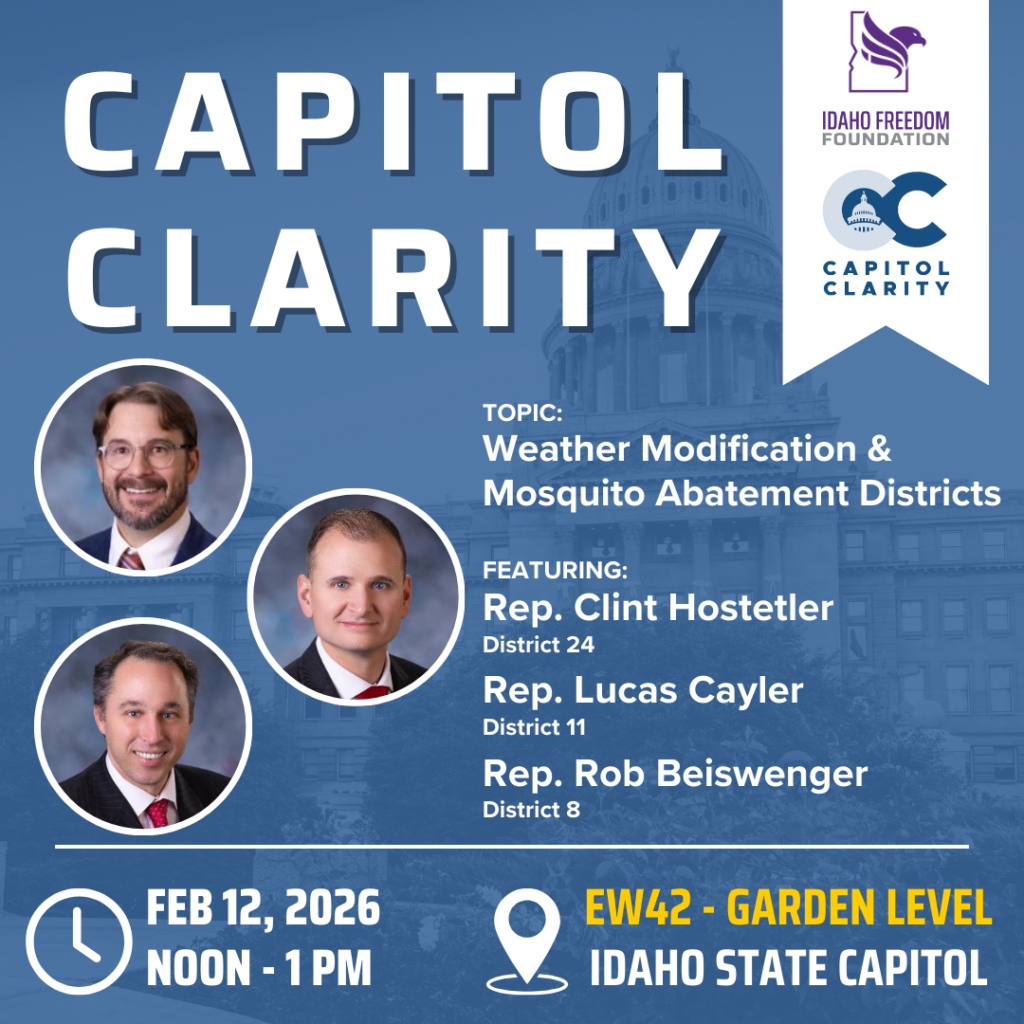


Bill description: SB 1303 would restrict unelected urban renewal commissioners from using eminent domain.
Rating: +1
Does it in any way restrict public access to information related to government activity or otherwise compromise government transparency or accountability? Conversely, does it increase public access to information related to government activity or increase government transparency or accountability?
In Idaho, the governing boards of urban renewal agencies can be formed one of two ways: The mayor of the city that formed the agency can appoint commissioners to the board or the city’s councilors can enact an ordinance declaring that the commissioners shall be elected.
As of the time of this writing, no urban renewal agencies in the state have elected commissioners. All commissioners have been appointed by various city mayors.
These appointed commissioners may exercise a power that is otherwise only granted to elected officials: They may take away land for public use in an exercise called eminent domain. This power normally lies only with elected officials, since eminent domain takes away one of the values this country was founded on — private property rights.
With such an important value at stake, it is critical that voters have the power to remove officials from office if they do not like the decisions they have made. They do not have that power, however, when the officials making those decisions are not elected.
SB 1303 would seek to increase government accountability by taking the power to use eminent domain away from unelected officials and putting it into the hands of officials at the city or county level.
(+1)
Analyst's Note: This rating was updated on 2/26 to reflect amendments made to the bill.



